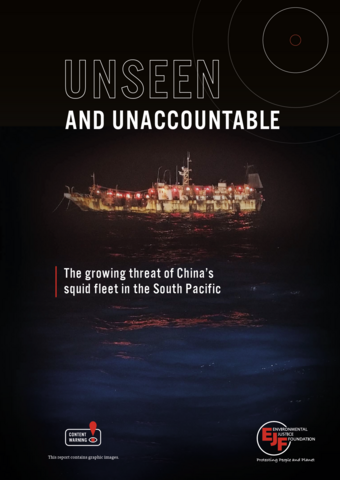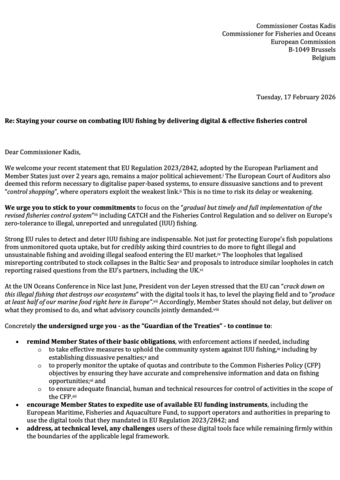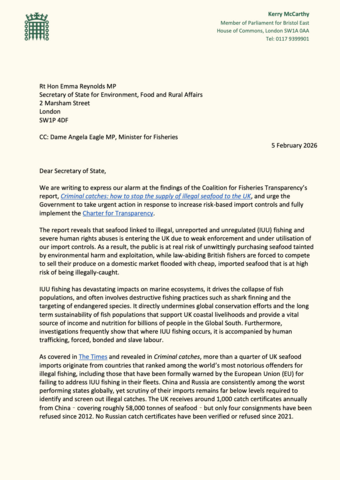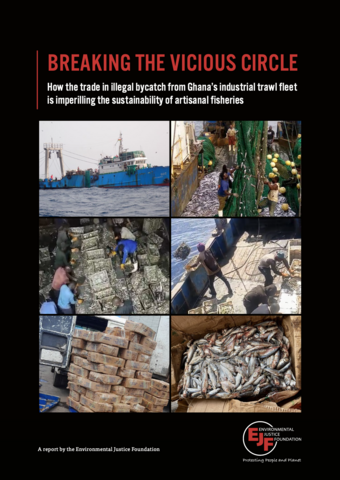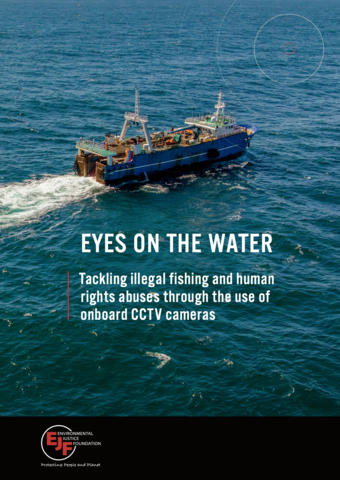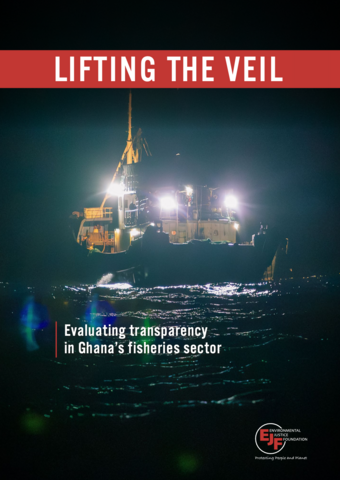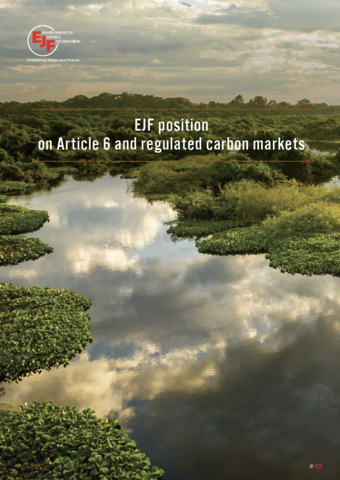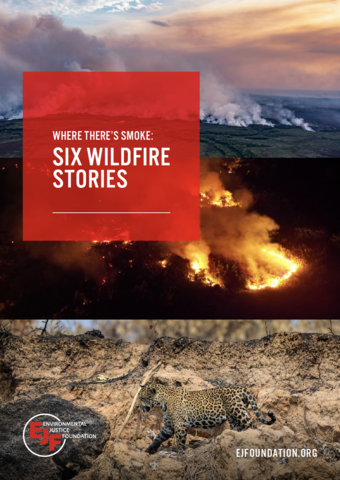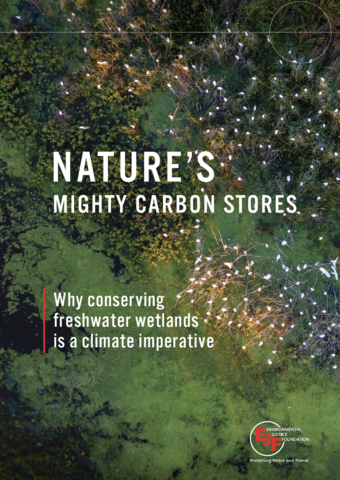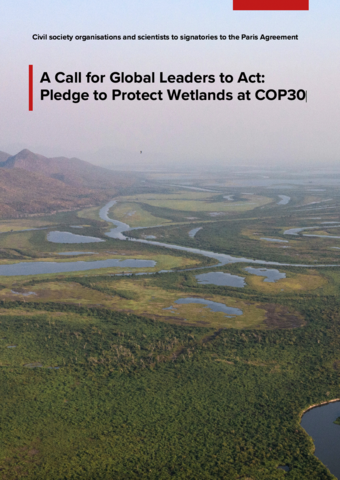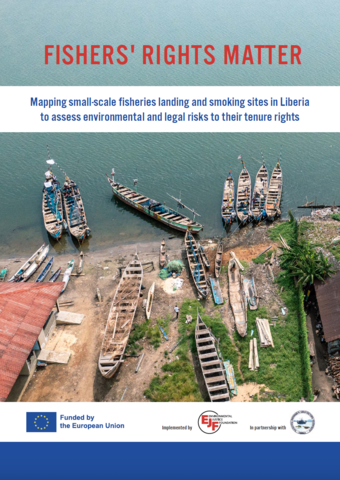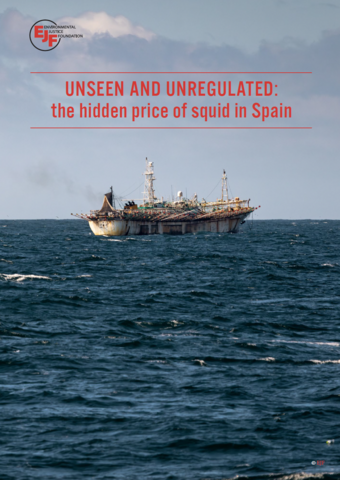Unseen and unaccountable: The growing threat of China’s squid fleet in the South Pacific: This report exposes the alarming environmental and human rights toll of China’s distant-water squid fleet in the Southeast Pacific. It draws on investigations that reveal widespread shark finning, marine mammal capture, abusive labour practices, and the unloading of deceased crew into Latin American ports. The report also highlights major governance failures: despite early warnings of a decline in the squid population, and calls for urgent reforms to end IUU fishing and forced labour in the world’s most important squid fishery. Watch the webinar where we discuss the findings of this report with experts: https://www.youtube.com/watch?v=4r0CjrHha2E
Letter to Commissioner Kadis: Staying your course on combating IUU fishing by delivering digital and dissuasive fisheries control: This letter urges European Commissioner for Fisheries and Oceans Costas Kadis to stick to his commitments to focus on the “gradual but timely and full implementation of the revised fisheries control system”, which includes CATCH and the Fisheries Control Regulation, to deliver on Europe’s zero-tolerance to illegal, unreported and unregulated fishing.
Parliamentary letter on UK's seafood imports: In this letter to Emma Reynolds MP (Secretary of State at the Department of Environment, Food and Rural Affairs) and Dame Angela Eagle MP (Minister for Fisheries), over 40 parliamentarians express their alarm at the ongoing failure to adequately scrutinise the UK’s seafood imports and the risk this poses to consumers, fishers and the marine environment. They urge the environment and fisheries ministers to take action to strengthen the UK’s import control system, to prevent the country from becoming a dumping ground for illegal and slave-caught seafood.
Breaking the vicious circle: How the trade in illegal bycatch from Ghana’s industrial trawl fleet is imperilling the sustainability of artisanal fisheries: Populations of small pelagic fish traditionally caught by artisanal fishers in Ghanaian waters are severely overfished and in a state of collapse. The alarming state of Ghana’s small pelagic fisheries results in part from persistent illegal, unreported and unregulated fishing by the largely foreign-owned industrial trawl fleet. The use of illegal fishing gear by trawlers results in large volumes of bycatch, known locally as logo fish - juvenile and undersized fish which are either discarded or sold to coastal communities for profit. Urgent action is needed to break this vicious circle and ensure a more sustainable and equitable future for Ghana’s fisheries.
Eyes on the water: Tackling illegal fishing and human rights abuses through the use of onboard CCTV cameras: Illegal, unreported and unregulated (IUU) and unsustainable fishing places immense pressure on the world’s oceans. These destructive practices go hand in hand with human rights violations and labour abuses. A major challenge in effectively tackling these issues is that much of this harmful activity occurs in the middle of the ocean, where it is easier to avoid detection. The findings of this report show that the adoption of fleet-wide CCTV, as a key tool within broader monitoring, control and surveillance systems, has massive potential to enhance transparency, tackle IUU fishing, and address human rights abuses at sea.
Lifting the veil: Evaluating transparency in Ghana's fisheries sector: Illegal fishing and overfishing risk the collapse of Ghana’s fish populations, directly undermining the most basic human rights of coastal communities, and costing the country millions of dollars every year. Greater transparency is needed to achieve sustainable, legal, and ethical fisheries. This analysis aims to inform and guide this action, and to assist Ghana in moving from commitment to the Global Charter to full implementation, ensuring that the benefits of transparency are secured for the many Ghanaians who depend on fisheries resources for their livelihoods.
EJF position on Article 6 and regulated carbon markets: This paper outlines EJF’s stance on carbon credits and the markets in which they are traded, highlighting the role they should play in climate negotiations and efforts to decarbonise the global economy. Under certain stringent conditions, carbon credits can play a role in achieving climate targets, but they are not a substitute for ambitious and decisive action to reduce greenhouse gas emissions.
Where there's smoke: six wildfire stories: Through first-hand accounts, testimonies from environmental defenders and expert insights, this report explores how fires are reshaping the map of risk, deepening inequalities and threatening lives, while reflecting on what must change to stop this crisis from escalating further.
Nature's mighty carbon stores: why conserving freshwater wetlands is a climate imperative: Freshwater wetlands store vast amounts of carbon, regulate water flows, and sustain biodiversity and livelihoods worldwide. Yet they are being drained, burned, and destroyed at alarming rates, setting off a ‘carbon bomb’ and fatally undermining global climate goals.
A Call for Global Leaders to Act: Pledge to Protect Wetlands at COP30: Civil society organisations and scientists respectfully urge climate leaders to place wetlands at the forefront of the global climate agenda at COP30 and take urgent steps to conserve and protect these ecosystems, vital to all life on Earth.
Fishers' rights matter: Mapping small-scale fisheries landing and smoking sites in Liberia to assess environmental and legal risks to their tenure rights: Liberia’s small-scale fisheries are the backbone of coastal livelihoods, but they face mounting threats from coastal erosion, mangrove destruction, and insecure land rights. Fishing communities’ rights are at risk without urgent action.
Unseen and unregulated: the hidden price of squid in Spain: Spain is a key market for squid harvested by foreign fleets in the unregulated Southwest Atlantic squid fishery, inadvertently driving unsustainable and illegal practices and undercutting domestic producers who must comply with stricter environmental and labour standards.
